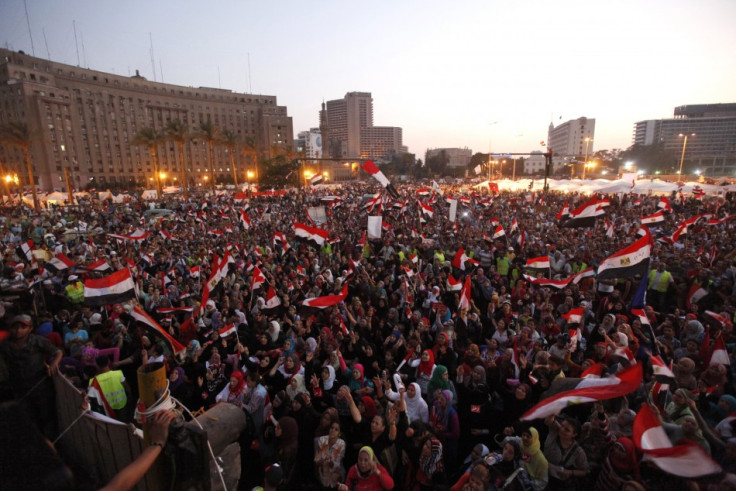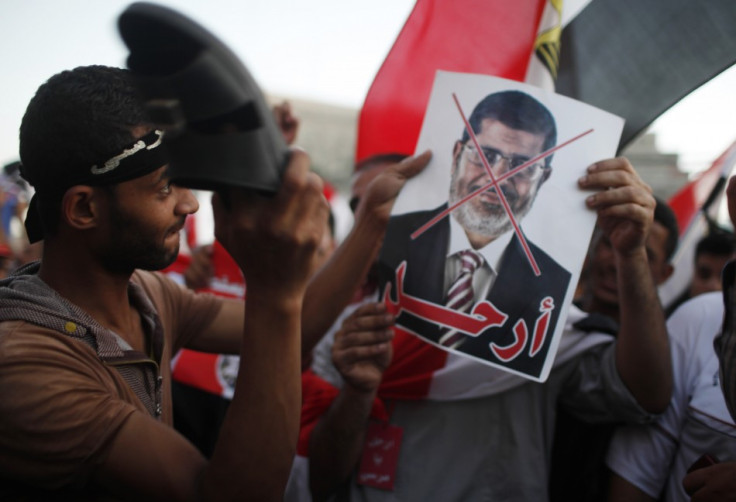Egypt: 29 People Killed in Violent Clashes on Anniversary of 2011 Uprising
Egypt: 147 People Injured in Street Clashes Between Rival Political Factions

At least 29 people have been killed in violent clashes in Egypt, on the anniversary of the 2011 uprising, which lead to President Hosni Mubarak being overthrown.
Interior Minister Muhammad Ibrahim had earlier urged Egyptians not to be afraid to go to events marking the third anniversary of the 18-day revolt.
Thousands of supporters of the military and the government, gathered in high-profile locations, including Tahrir Square.
Extra security measures were in place, as rival demonstrators and opponents of the military-backed regime also descended on Cairo.
The health ministry official, Ahmed Kamal, confirmed that 29 people have been killed and 147 injured in street clashes, as police attempted to break up anti-government protests.
The only thing allowed is Sisi revolutionaries.
Police reportedly chased protesters into side streets, firing live rounds of ammunition, as well as tear gas, without warning.
The majority died in Cairo, with two reported dead in the southern city of Minya and a woman was killed in Egypt's second city of Alexandria. There were also reports of scores of arrests, of Islamist supporters of deposed President Morsi, but also secular opponents of the military regime.
Protesters waved Egyptian flags and banners depicting army chief Gen Abdel Fattah al-Sisi, whom many have urged to run for president.
"The only thing allowed is Sisi revolutionaries," activist Wael Khalil, told the Associated Press news agency.
"This was supposed to be a day to mark the revolution... I don't get it. Do they think that there will be a working democracy this way?" he said.
Al-Jazeera journalist Peter Greste, who has been detained by Egyptian authorities for nearly a month, has written a letter from solitary confinement, describing Egypt's prisons as "overflowing with anyone who opposes or challenges the government".
On Friday, (January 24) 15 people were killed and 87 injured in clashes between the military-backed government and the Muslim Brotherhood across Egypt, according to the health ministry.

Hundreds have been killed since July, when the army deposed President Mohammed Morsi.
The Anti-Coup Alliance, led by Morsi's Muslim Brotherhood, called for 18 days of protests, beginning today, and mirroring the 18 days of protests that led to Mubarak being ousted from power three years ago.
The Brotherhood has regularly held protests since the overthrow of Morsi and has been declared a "terrorist organisation."
In a defiant statement on Saturday, the Brotherhood vowed not to leave the streets "until it fully regains its rights and breaks the coup and puts the killers on trial", reported AP.
The army-backed government says it aims to restore civilian rule, which was overwhelmingly approved in a referendum last week.
Three years on from the uprising, that once raised hopes of political reform in the Arab world's most populated country, rival demonstrations are indicative of the deep divisions and the political strife that remain.
© Copyright IBTimes 2025. All rights reserved.





















